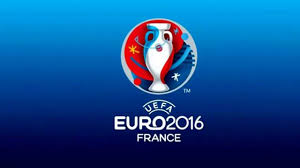By Samindra Kunti
September 22 – French organisers of the Euro2016 tournament have said that it is their intention that the tournament will galvanise more of the French youth into playing football and that through improved facilities the tournament will leave a sustainable legacy. To that end they have launched a number of social programmes.
Euro2016 will be the first European championships since it inception in 1960 with 24 participating countries, opening up considerably more opportunities for smaller nations on the major tournament stage.
In the last international fixtures window Iceland and Austria added to the excitement ahead of EURO2016 by surprisingly qualifying for the tournament. Wales and Northern Ireland are also on the brink of qualifying for the first time.
Euro2016 organisers are aiming for more than just a successful competition, but want French football to benefit directly from the tournament to entrench the sport more profoundly in French society and culture.
“We hope we can change the image of football, to show people the importance of grassroots football, and that it is not just about billionaire players,” said deputy general manager of the French football association Victoriano Melero.
For the FFF, Euro2016 is an unique chance to activate French youth and get them playing more football. Between now and next June a Euro 2016 roadshow will visit 20 non-host cities, spending a weekend in each, giving football demonstrations and holding related civic and social events.
A programme has been set up to introduce football to children aged six to ten years old. At smaller clubs across France, the FFF is investing £33 million in the modernisation of facilities.
For the professional game modernised venues must catapult French football into the 21st century and make it compete with the top leagues in Europe. Local authorities and a limited number of private investors have pumped up to £1.2 billion into the stadiums, with an additional £291 million spent on surrounding infrastructure. The new stadium in Lyon, which is set to host a semi-final, is to be completed by late December.
“The Germans used the World Cup stadium programme to build their football fan base, and we are hoping for this effect this time round,” said head of the stadium strategy committee at the French football league Alain Belsoeur.
“However, contrary to 1998, our clubs will now have properly new or modernised stadiums, and with more hospitality places,” added Belsoeur.
“We hope that the new stadiums will bring in people who may not be football fans, but who are casually interested in football, such as happens in England or Germany.”
Contact the writer of this story at moc.l1745191468labto1745191468ofdlr1745191468owedi1745191468sni@i1745191468tnuk.1745191468ardni1745191468mas1745191468

